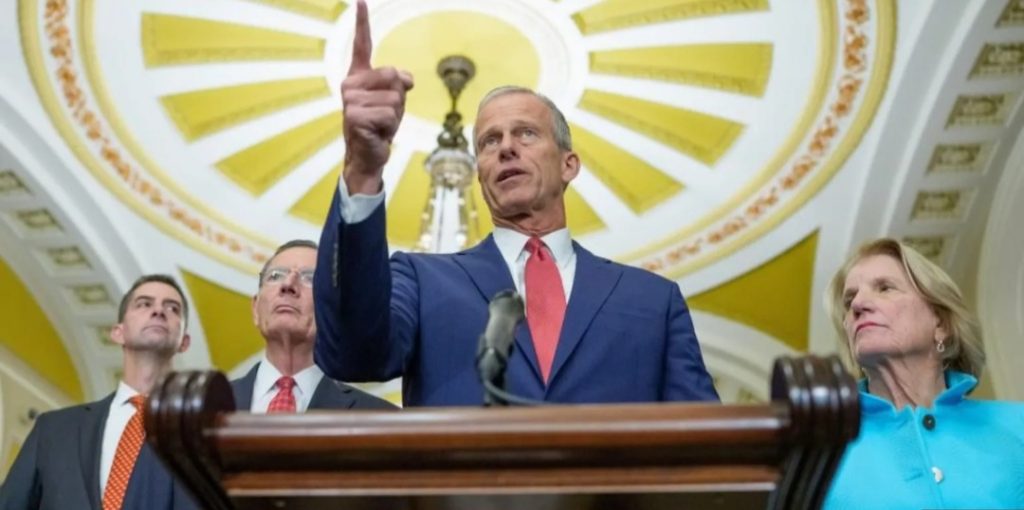
Esther Imonmion
The US Senate on November 10 passed a deal aimed at ending the US government shutdown, marking the first significant step toward resolving the record-breaking impasse that began on 1 October.
After a weekend of negotiations in Washington, a minority of Democrats joined Republicans to back the agreement. The procedural vote paves the way for a compromise to fund the government but must still pass the House of Representatives before federal employees can return to work.
The US government shutdown — now in its 40th day — is the longest in history. It has halted many government services and left about 1.4 million federal workers either on unpaid leave or working without pay. The closure has also disrupted air travel and food assistance for more than 41 million low-income Americans.
The deal was negotiated between Senate Majority Leader John Thune and the White House, with Democratic senators Jeanne Shaheen and Maggie Hassan of New Hampshire, and Angus King of Maine, an independent who caucuses with Democrats.
Republicans, holding a 53–47 majority in the Senate, needed at least 60 votes for the measure to pass. They secured eight votes from across the aisle, while only Kentucky Senator Rand Paul opposed it, citing concerns about national debt.
A key element of the compromise is a commitment to hold a December vote on extending healthcare subsidies set to expire this year. Democrats had demanded action on the subsidies, which help millions afford health insurance through government exchanges.
“I’m thankful to be able to say we have senators, both Democrats and Republicans, who are eager to get to work to address that crisis in a bipartisan way,” Thune said ahead of the vote, praising President Donald Trump for his willingness to engage on the issue.
However, Democratic leaders, including Senator Chuck Schumer, criticised the agreement for lacking concrete assurances. “This bill does nothing to ensure that the healthcare crisis is addressed,” Schumer said, confirming he would vote against it.
California Governor Gavin Newsom also denounced the decision by some Democrats to support the measure, calling it “pathetic.”
The bill includes three appropriations measures to fund agencies such as Veterans Affairs and Agriculture, along with a continuing resolution to keep the rest of the government running until 30 January — raising the possibility of another US government shutdown early next year.
It further guarantees back pay for all federal workers and extends funding for the Supplemental Nutrition Assistance Program (SNAP) until September, ensuring continued food support for one in eight Americans.
The agreement now heads to the House of Representatives, where it faces further debate and potential opposition before it can officially end the US government shutdown.
